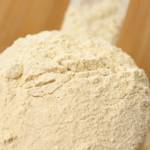Litmus Test for Probiotics in Horses

Direct-fed microbials, more commonly referred to as probiotics or DFMs, reportedly help horses by providing live microorganisms, usually yeast or bacteria, to the intestinal tract to support fermentation, boost the immune system, and bolster the overall health of the animal. These products are becoming more and more common in equine rations*.
“In order to be useful in hindgut fermenters such as horses, DFMs must remain viable during their trek from mouth to colon,” noted Kentucky Equine Research nutritionist Kathleen Crandell, Ph.D.
To reach the colon, they must survive the harsh stomach environment and the length of the small intestine before finally reaching the cecum and colon.
“Dead bacteria do not afford any beneficial health benefits to the horse and may delay the feeding of more appropriate products,” Crandell advised.
To determine whether orally supplemented probiotic bacteria can remain viable at various acidity levels, researchers selected four common bacteria included in probiotic supplements and grew them in culture at different pH levels to assess viability. Selected strains were Bacillus subtilis, B. coagulans, B. infantis, and Lactobacillus acidophilus.
The researchers found that at a low pH (3.5), fairly typical of the equine stomach, the DFMs did not survive. While the optimal pH for growth differed for the four studied bacteria, in general, the bacteria were not only viable but significant growth occurred at higher—but still acidic—pH levels. For example, B. coagulans showed significant growth at pH 4.5 and L. acidophilus grew well above a pH of 5. Both of these pH levels occur in the equine stomach.
“These results show that DFMs can survive and grow in acidic environments similar to what exists in the equine stomach. These findings suggest that probiotics can be useful but more studies in live horses are needed,” explained Crandell.
Gastrointestinal-buffering supplements have been shown to support conditions that aid the intestinal microbiome. Research-proven products offered by Kentucky Equine Research include EquiShure (a time-released hindgut buffer), RiteTrac (containing an antacid and EquiShure), and Triacton (a total digestive tract buffer combined with other benefits for bone).
*Jacobs, R., M. Gordon, D. Grum, et al. 2019. The effect of pH on the viability of a variety of direct-fed microbials: A pilot study. Journal of Equine Veterinary Science 76:39-65.








